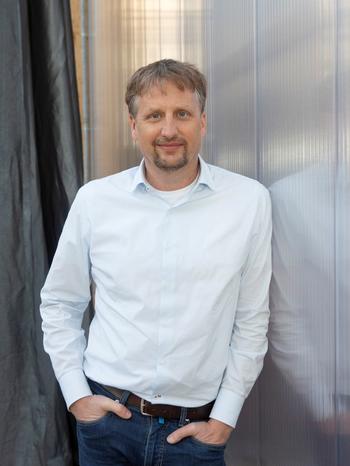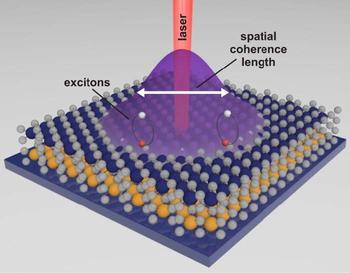Physikalisches Kolloquium & TRR 227: Prof. Dr. Alexander Holleitner: How to observe an excitonic Bose-Einstein condensate
Prof. Dr. Alexander Holleitner
Bildquelle: TUM
How to observe an excitonic Bose-Einstein condensate
Bildquelle: J. Figueiredo/TUM
Technische Universität München, Fachbereich Physik und Walter Schottky Institute, München
Gemeinsames Kolloquium des Fachbereichs Physik der Freien Universität Berlin und des TRR 227 "Ultraschnelle Spindynamik"In diesem Vortrag wird Prof. Holleitner seine Forschung im Bereich der Exzitonen vorstellen. Hierbei wird er insbesondere auf das Bose-Einstein-Kondensat und den Einfluss von Temperaturen eingehen
One of the true “holy grails” in exciton physics is the search for a Bose-Einstein condensate of excitons at elevated temperatures. I will introduce the necessary experimental prerequisites such that an exciton condensation can be claimed. Particularly, I highlight the example of interlayer excitons formed in van der Waals MoSe2/WSe2 heterobilayers. There, we could demonstrate an extended spatial coherence of interlayer exciton ensembles as characterized by point-inversion Michelson-Morley interferometry.
Below 10 K, the measured spatial coherence length of the interlayer excitons reaches values equivalent to the lateral expansion of the exciton ensembles. In this regime, the light emission of the excitons turns out to be homogeneously broadened in energy with a high temporal coherence. At higher temperatures, both the spatial coherence length and the temporal coherence time decrease, most likely because of thermal processes.
The presented findings point towards a spatially extended, coherent many-body state of interlayer excitons at low temperature.
Zeit & Ort
24.11.2023 | 15:00 c.t.
Hörsaal B (0.1.01)
Fachbereich Physik
Arnimallee 14
14195 Berlin
Weitere Informationen
Gastgeber
Schlagwörter
- Alexander Holleitner
- Nanomaterialien
- Nanotechnologie
- TU München
- TUM

